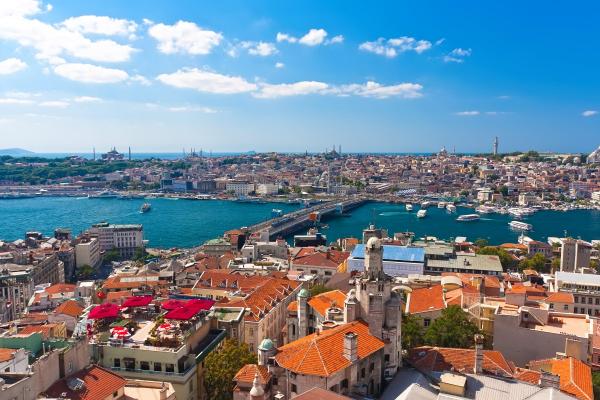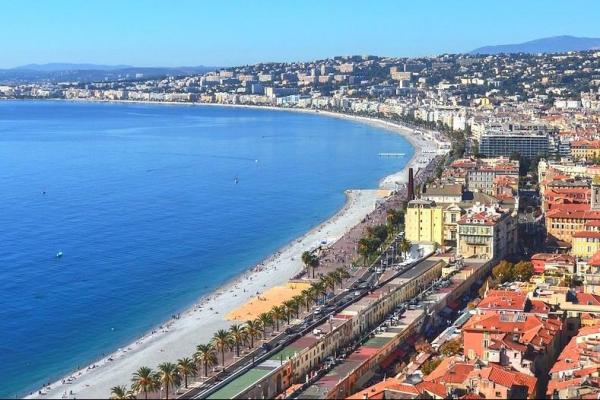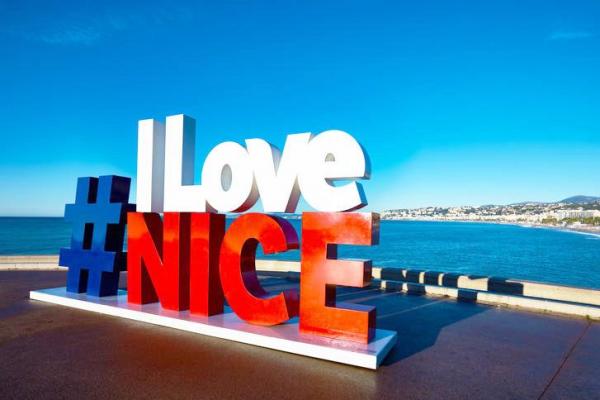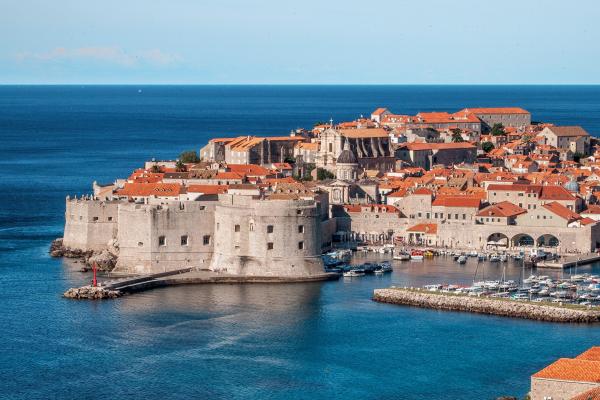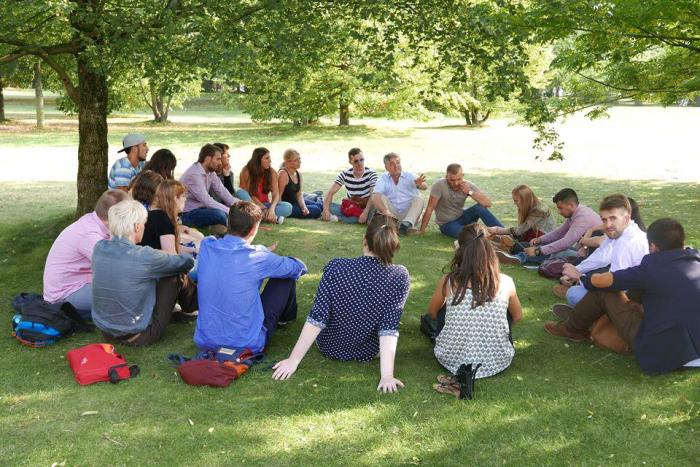
Master in Advanced European and International Studies - Mediterranean Studies
-
No other university has given me with a similar experience. I would not have become the person I am now in terms of personal development and professional skills if I had not spent that year in Nice. Of course, I would not work for the Commission without having done European studies and I would not feel at home when I visit Nice occasionally.
← | →
-
I enjoyed have good memories from that time in Nice. I enjoyed learning with people from many different countries and backgrounds. The main advantage of this programme was this diversity. Plus, the knowledge I gained was very useful for my job.
← | →
Master
In Tunis (Tunisia), Nice (France) and İstanbul (Turkey)
*Indicative price
Original amount in EUR:
8,900 €

Learn the Mediterranean history while you travel and adventure!
-
Type
Master
-
Location
-
Duration
1 Year
-
Start date
March
other dates -
Credits
60
-
Internship
Yes
Interested in exploring Mediterranean cultures and history?
The Mediterranean Studies programme of the Master in Advanced European and International Studies (MAEIS) delivered by the Centre International de Formation Européenne follows an original approach which distinguishes it from other Master degrees in Euro-Mediterranean Studies and International Relations. It is international and interdisciplinary and follows the slogan 'Learning and Living the Mediterranean'. Participants change their study location from Nice to Tunis and then to Istanbul, including a study trip to Dakar or Rome.
The programme lasts one year and is subdivided into three terms:
- In Nice (October to December), dedicated to helping students analyse the Mediterranean region and Euro-Mediterranean relations from an EU-country perspective. Courses will introduce them to the institutional architecture of the EU and its neighbourhood policy. In this view the students will also discuss the shared risk of populism, terrorism and climate change.
- In Tunis (January to March), researchers from the region will analyse transformation processes in the Southern and Eastern Mediterranean regions in times of globalisation. A special emphasis will be put on the Maghreb. Studying in Tunisia will provide the students with a unique experience of a historic democratisation process that turned the Nobel peace prize winning country into a role model throughout the MENA region. Note that an Arabic language course is compulsory for non-Arabic speakers.
- In Istanbul (April to July), the programme concludes with courses tackling the dynamics of EU-Turkey relations, including questions of migration and climate action.
From mid-May until mid-June students can freely dedicate their time to Master thesis research.
With their graduation, students become part of CIFE's wide Alumni network.
Facilities
Location
Start date
Start date
Start date
Start date
About this course
The Mediterranean Studies programme of the Master in Advanced European and International Studies aims to educate the next generation of Euro-Mediterranean decision makers, by giving them a solid knowledge and a full panorama on the situation the Mediterranean region is facing nowadays, its relation with the EU, its integration and development in a globalised world.
The interdisciplinary graduate programme is aimed at students who have already completed a first degree (minimum three years of study at university level). Furthermore, students must have an good active knowledge of English and French. The Mediterranean programme of the MAEIS is open to all disciplines.
Language requirements: minimum level for English and French is B1 for one and B2 for the other, a proof of knowledge for each should be submitted too.
Other documents:
1. Letter of motivation
2. Curriculum Vitae
3. Passport size photograph
4. Copies of university/ies diploma/s and transcript of records (together with an official translation if it is not in French or English)
Students who successfully complete the programme are awarded two certifications at the end of the academic year:
- Master in Advanced European and International Studies: This is the diploma of CIFE as a private institution of higher education, granting 60 ECTS credits at Master level.
- The degree qualification Chargé de mission en organisations européennes et internationales (Policy Officer in European and International Organisations): This qualification is recognised by the French state as a degree at Master level (level 7 of the European Qualification Framework EQF).
The Mediterranean Studies programme of the Master in Advanced European and International Studies offers a cluster of diverse modules, spanning topical issues ranging from conflict management to environmental challenges, a lively format of lectures, seminars, conferences, practice, all in an international environment. Furthermore, students have the chance to study and live in three important cities of the region, and experience Euro-Mediterranean relations in person.
Candidates must submit a registration dossier to the CIFE secretariat.
They can either apply via the online application form (www.ie-ei.eu/en/11/Registration) or send the application form by email.
For more information please visit: www.cife.eu
Yes. The professional title granted by the MAEIS is recognised by the French state as a degree at Master level - level 7 of European Qualifications Framework. The Master's degree is awarded by the CIFE as a private institution supported by the European Commission.
The programme is worth 60 ECTS. The European Credit Transfer System had been created by the European Commission in order to ensure that degrees are being recognised in an international level.
The programme is open to all students from all disciplines who have completed a 3-year university cycle.
You are able to fully understand it but you do not have to have a high level of writing and speaking.
This amount covers the study fees, the student's accommodation in Tunis, the programme-related travel expenses, the simulations and professional skills workshops, conferences as well as access to local libraries.
A limited number of scholarships is available for particularly qualified candidates.
Reviews
-
No other university has given me with a similar experience. I would not have become the person I am now in terms of personal development and professional skills if I had not spent that year in Nice. Of course, I would not work for the Commission without having done European studies and I would not feel at home when I visit Nice occasionally.
← | →
-
I enjoyed have good memories from that time in Nice. I enjoyed learning with people from many different countries and backgrounds. The main advantage of this programme was this diversity. Plus, the knowledge I gained was very useful for my job.
← | →
Course rating
Recommended
Centre rating
David Spence
Isabelle Weykmans
Subjects
- International
- Conflict Management
- European Politics
- Politics
- Project Manager
- Communications
- Meditation
- Negotiation Skills
- Simulation
- Global
Teachers and trainers (1)
Matthias Waechter
General Director of CIFE
Matthias Waechter was born in Bonn in 1965. After his studies of History and Philosophy at the Universities of Bonn, Freiburg, Paris, and Rochester, he took his PhD at the University of Freiburg in 1994. He was a Research Fellow at the German Historical Institute Paris in 1997/98 and a Fulbright Fellow at New York University in 1999. In 2000, he joined CIFE and in 2006 as Director of the Institut européen. Since 2013, he serves as Director General of CIFE. He specialises and teaches U.S. history, contemporary France, Franco-German relations and European integration.
Course programme
- Conflict Management and Peacemaking: The Mediterranean is a case study par excellence for Peace and Conflict Studies. In the last two decades, Mediterranean societies have been significantly affected by inter-group violence and inter-state conflicts: from the Western Balkans to Cyprus, from Israel to Palestine, from Libya to Syria.
- Globalised Economy in the 21st Century: This century's globalised economy is defined by the multiplication of actors: states, transnational corporations,international institutions, NGOs and mafias are all stakeholders. The rise of emerging economies since the 1990s has shaken up power relations. The global economy is dynamic and will continue to allow countries to escape poverty, but it is also a source of deep inequality that gives rise to diverse fears.
- Regional Integration Policies: The EU has become a role model of regional integration. How is the dynamic architecture of European institutions, including European Neighbourhood Policy functioning? To what extent do the Arab League or the Union for the Mediterranean follow a similar logic of regional integration? How can we explain transitions and differences in the Southern Mediterranean since the Arab Spring?
- Mediterranean Politics and Societies: Migration, gender and media are policy fields that all Mediterranean societies have in common, but approach differently. At the crossroads of theory and practice, this policy-oriented module proposes solutions to the historical, social and cultural challenges Mediterranean societies face today.
- Professional Skills Workshops: This module equips the participants with professional skills and competences that will enable them to work in a European and international environment.
Additional information
Master in Advanced European and International Studies - Mediterranean Studies
*Indicative price
Original amount in EUR:
8,900 €


